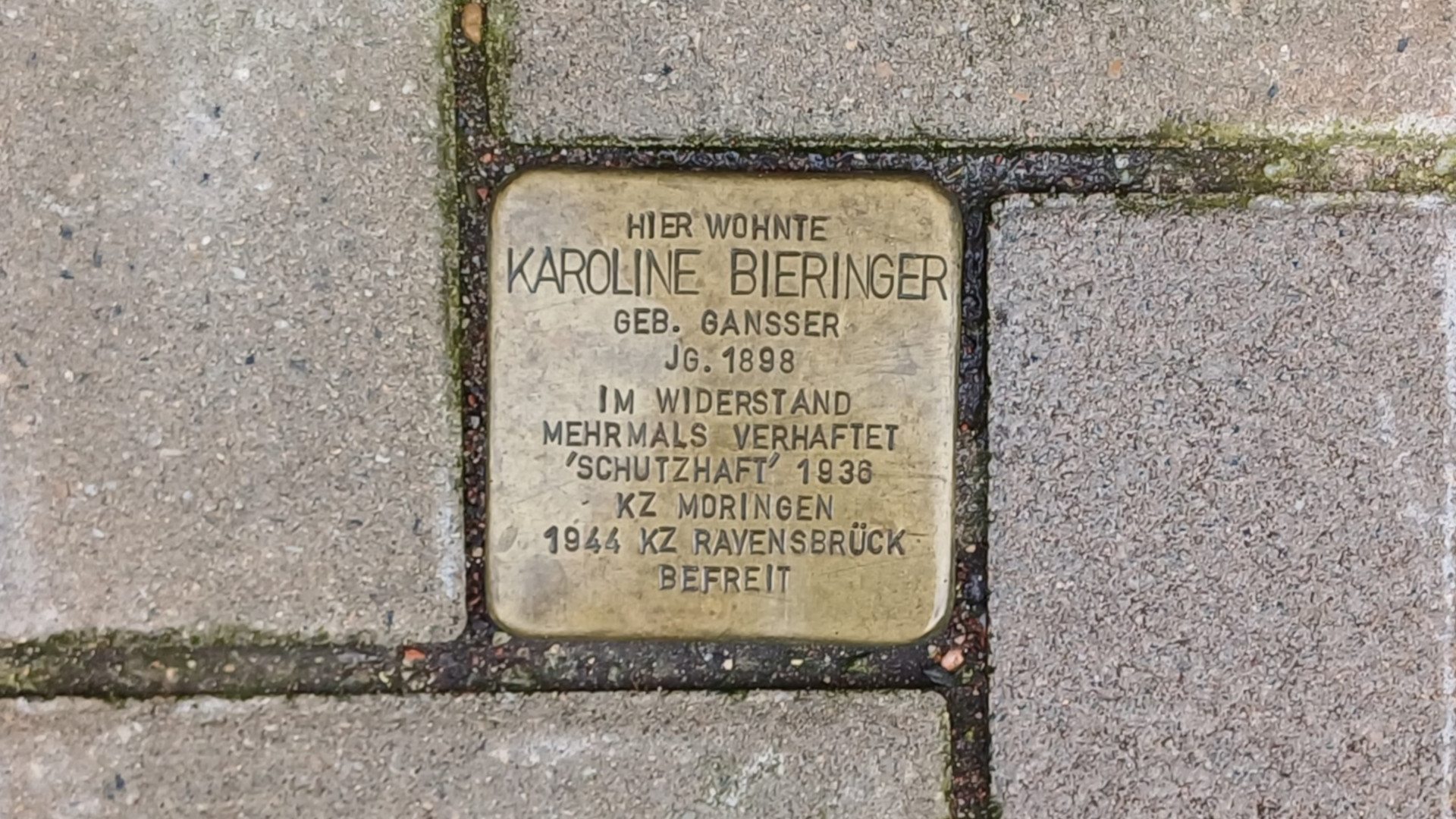| Location of stone: Hoppertstraße 8, formerly Richard-Wagner-Straße 8 | District: Maxfeld |
| Sponsor: Lorenz Graf-Vlachy | Laying of stone: 26 May 2023 |
Biography
On 26 May 2023, Gunter Demnig laid ten stumbling stones in Nuremberg, five of them in memory of individuals who, through their opposition to the Nazis, became victims of the National Socialist state. The biographies were researched by a P-Seminar at Nuremberg’s Hermann Kesten College, led by Dr Maren Janetzko and Dr Pascal Metzger (Geschichte Für Alle / History for Everyone). One of the biographies was that of Lina Bieringer, who, due to her political activity, spent many years in prison and in concentrations camps.
Karoline Bieringer (née Ganßer) was born on 9 November 1898 in Widdern near Heilbronn. She lived with her husband Otto Bieringer (a metal polisher by trade) and her son Emil at Richard-Wagner-Strasse 8 (today Hoppertstrasse 8) in Nuremberg. She ran a laundry with her husband. Both Karoline and Otto were socialists.
In June 1933, they were denounced for distributing copies of the “Red Flag” (“Rote Fahne”) newspaper. The Nuremberg Special Court sentenced them to three years’ imprisonment on 7 July 1933. Initially, they were sent to Aichach Prison and then, in February 1936, to the prison in Donauwörth. Following their release in June 1936, the Nuremberg Gestapo took them into “protective custody” and they were imprisoned in Moringen concentration camp for two years. On 27 November 1941, the regional court at Nuremberg sentenced them to three years’ imprisonment, again to be served at Aichach, for listening to foreign radio stations. From August 1944 until the end of the war, Karoline was a prisoner at Ravensbrück concentration camp.





![[Translate to English:] [Translate to English:]](/fileadmin/Stolpersteine/Portraits/Freund_Max_and_Bella.jpg)


